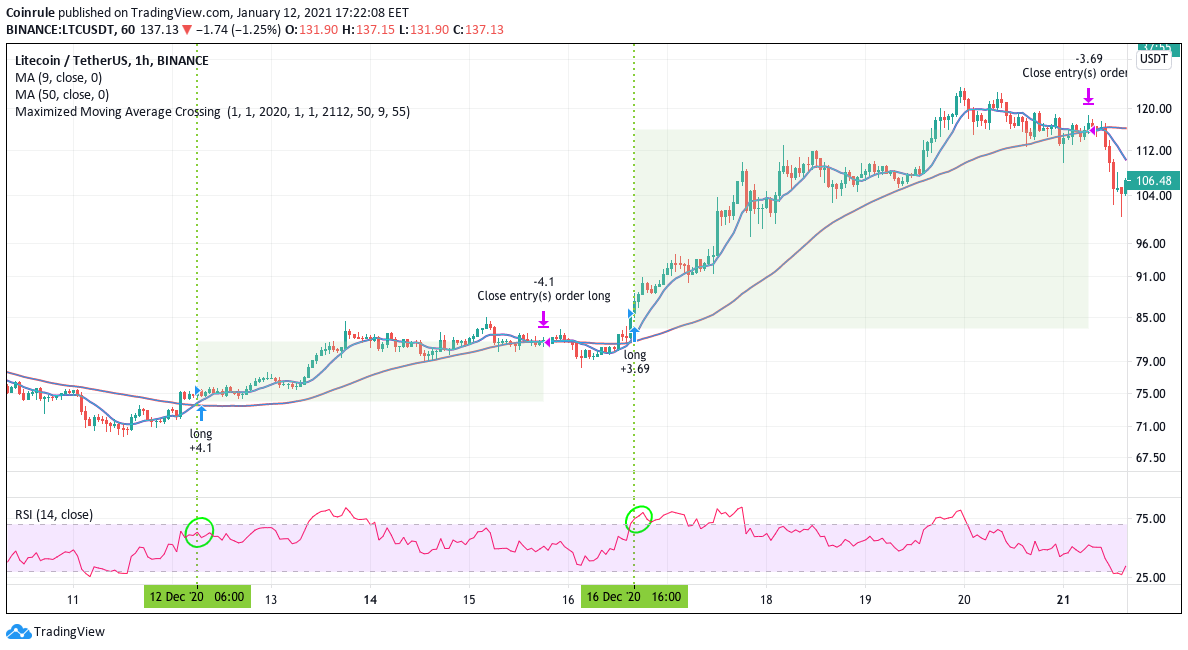Maximized Moving Average Crossing
Last updated November 4, 2024
Introducing the 'Maximized Moving Average Crossing' Template
Is it possible to improve one of the most common and successful trading strategies? This rule aims to catch the best trend opportunities dynamically on the market.
The strategy uses Moving Averages and the RSI to maximize the returns.
How it works
One of the most common trading strategies for beginners involves buying when two Moving Averages crosses. That is a Trend-Following approach. As the name would suggest, to be successful, it requires the asset to be on-trend.
Adding the RSI to the condition makes sure that there are more possibilities of closing the trade in profit because higher RSI values indicate that the coin has volatility and, therefore, upside potentials.
Pro-tip: this is a long-term strategy that performs on all coins. By default, the rule opens one trade at a time , but you can increase the trade frequency using the Any Time Operator .
Spot the best time for buying
When the MA9 crosses above the MA50, that indicates that the coin is potentially entering an uptrend. On the other hand, this can also happen in times of low volatility when the Moving Averages are very close to one another. That is the main limitation of using this indicator.
By adding the RSI to the buy condition, the rule can trade when the chances of closing the trade in profit are higher.
The best time frame for this setup is the 1-hour, but it can also work well on the 4-hour.
Close your trades
The strategy closes the trade when the opposite crossing occurs, meaning that the trend is weakening, and it's appropriate to exit the position.
Since there is no fixed level to close the position, the strategy can dynamically follow the trend to maximize profit.
Backtest the strategy on Tradingview
You can backtest this strategy using this trading script published on Tradingview. You can test the results on historical data, selecting the coin of your choice, and adjusting the parameters to fit even better your needs.
This is a guide to learn how to backtest strategies on Tradingview.




